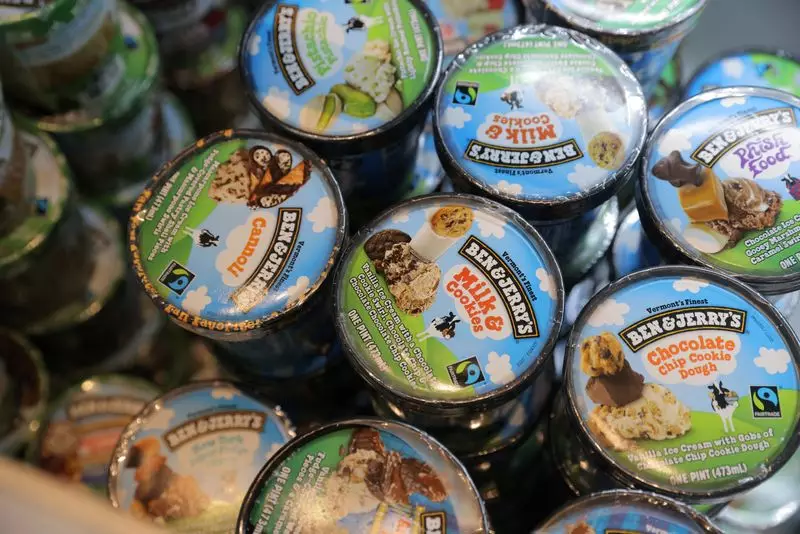The conflict between Ben & Jerry’s and its parent company Unilever has evolved into a complex legal and ideological standoff that raises significant questions about corporate governance, brand identity, and social responsibility. The turmoil ignited in 2021 when Ben & Jerry’s announced its decision to cease selling ice cream in the Israeli-occupied West Bank, citing a misalignment with its commitment to social justice and human rights. This move was not only a brave stance but also a reflection of the company’s longstanding dedication to progressive causes since its inception in 1978 by founders Ben Cohen and Jerry Greenfield.
Unilever, a multinational consumer goods company known for its vast array of brands, faced backlash from various investors who perceived Ben & Jerry’s actions as politically charged. The tension escalated when Ben & Jerry’s filed a lawsuit against Unilever for selling its business in Israel to a local licensee, allowing the ice cream to keep being marketed in both Israel and the occupied territories. This lawsuit culminated in a confidential settlement in 2022, the terms of which are now at the heart of the company’s current legal struggles.
In a lawsuit filed on Wednesday, Ben & Jerry’s has come forth with allegations against Unilever for breaching the terms established in their previous settlement. According to the ice cream company, Unilever has actively thwarted its attempts to publicly advocate for Palestinian refugees and human rights. This lawsuit is a testament to what Ben & Jerry’s describes as “silencing” by its parent company, which sought to maintain a favorable public image while stifling the brand’s ability to promote its ethical values.
The ice cream giant claims it has been impeded from making public statements advocating for peace and humanitarian aid, including calls for a ceasefire in Gaza and support for peaceful demonstrations across U.S. campuses. The independent board of Ben & Jerry’s has openly criticized these actions, arguing that the brand has a responsibility to engage in social discourse. Unilever’s response, as per the lawsuit, has positioned the company more concerned about its public relations than the moral compass that has defined Ben & Jerry’s since its founding.
This ongoing legal battle raises poignant questions about the implications of corporate control over brand identity. A brand known for its strong social conscience is now intertwined in complex corporate machinations that threaten to undermine its core values. Unilever, despite its power over operational decisions, cannot easily reconcile its broader consumer base with the delicately progressive voice of Ben & Jerry’s.
In a powerful turn, the lawsuit hints at potential retaliatory actions from Unilever, including threats to reshape Ben & Jerry’s independent board and legal action against its members for their advocacy work. This corporate maneuvering sends a clear signal about the limits of autonomy that subsidiaries may expect when nestled under the umbrella of a multinational corporation.
The lawsuit also sheds light on a financial agreement between the two companies, where Unilever was obligated to donate a total of $5 million to human rights initiatives chosen by Ben & Jerry’s. The selection of beneficiaries, including organizations like Jewish Voice for Peace, faced pushback from Unilever, which deemed some of these groups as too critical of Israeli policies. As these financial and ethical tensions come to the forefront, they represent a broader narrative about corporate complicity in political matters.
Unilever’s decision to spin off its ice cream business by 2025 could signal a turning point for Ben & Jerry’s, offering the brand an opportunity to reclaim its narrative and operate independently. This potential separation raises curiosity about whether Ben & Jerry’s will steer its course back toward the social justice-oriented mission that originally defined its early years.
The Road Ahead: A Quest for Clarity and Agency
As the legal battle unfolds, both the public and stakeholders are eager for clarity regarding the brand’s stance on social issues. Ben & Jerry’s is at a crossroads, caught between corporate expectations and the ethical responsibilities that have fueled its foundation. The struggle for autonomy in expressing political views and supporting humanitarian causes will not only define its future but may also inspire other brands facing similar dilemmas. The confrontation between Ben & Jerry’s and Unilever epitomizes a growing tension in corporate America where consumer expectations for social responsibility clash with traditional business imperatives, ultimately questioning what it means to be a socially conscious brand in a capital-driven environment.

